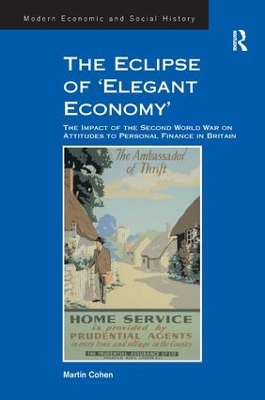Modern Economic and Social History
1 total work
Elizabeth Gaskell might have been amused to learn that the Victorian 'elegant economy' she mocked so poignantly in Cranford reached a new apogee in the mid-twentieth century and endured the invasion of its precise antithesis, 'conspicuous consumption'. For Britons of all classes the years of austerity during and after the Second World War were years of disorientation and fears of resurgence of the worst of the interwar decades. They had never had more money in their pockets or less material things on which to spend it. Many took refuge in the 'elegant economy', its creator dubbed 'a sort of sour-grapeism, which made us very peaceful and satisfied'. Constrained by rationing, manufacturing and import controls personal finance could only be disbursed on non-material things - sometimes wisely, sometimes pragmatically and sometimes by throwing all caution to the wind. Here for the first time is the history of these diverse reactions explored through Britain's metamorphosis from austerity to affluence, with consumerism seen through fresh eyes. Today political commentators constantly warn of the encroachment of austerity. This book is a timely reminder of the years of real austerity in Britain: when regardless of financial status everyone suffered its tribulations: when a 'sub-prime' mortgage was unimaginable: when abuse of expense claims by public figures was unthinkable: and when no one dared utter a word critical of their bank or its manager.
